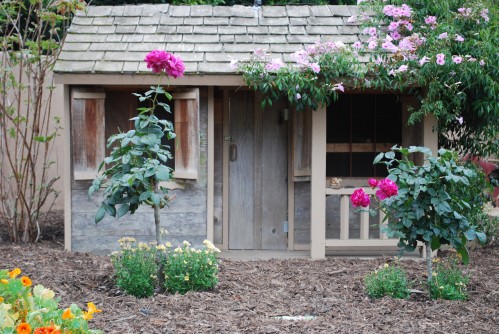 If you have chickens, do yourself a favor as well as your chickens, by keeping their coop and outside pen clean. In a clean environment, your chickens will be healthy, happy, and flourish for many years. On the flip side, if your chicken coop and outside pen is always dirty, you are courting disease, stress, flies, rancid food, rodents, dirty eggs, and more. Your flock will not be able to live an optimum healthy happy life.
If you have chickens, do yourself a favor as well as your chickens, by keeping their coop and outside pen clean. In a clean environment, your chickens will be healthy, happy, and flourish for many years. On the flip side, if your chicken coop and outside pen is always dirty, you are courting disease, stress, flies, rancid food, rodents, dirty eggs, and more. Your flock will not be able to live an optimum healthy happy life.
We all live in different parts of the country and the world with different climates, and most likely have some sort of unique chicken coop set up. So the formula is, what ever works for you, as long as your chickens are in a clean environment. Do you have tips for keeping your chicken coop clean, that you would like to share?
I have mentioned previously in the post, "Backyard Chicken Coop", Roosting Bar & Manure Box, I clean my manure box under my hen roosting bar every morning, skimming it and putting it into the compost. I rotate my chicken coop bedding on a regular basis, starting with fresh bedding in the nesting boxes, rotating the bedding to the chicken coop floor and then to the manure box, and finally to the compost bin. This method of cleaning has worked quite well for me.
My hens always have plenty of fresh water and quality laying mash. I supplement with greens, fruits, and vegetables every day for treats. Any uneaten treats also go into the compost bin. Chickens love their protein, as much as their grain. Do not be alarmed if your chickens eat a mouse, small lizard, grasshopper, snail, worm...these are also perfectly natural foods for chickens.
Every month, or more frequently if needed, I thoroughly clean my chicken waterers by soaking them in a tub of "food safe dish soap" and and a few tablespoons of bleach for a half an hour or so. The bleach acts as a sterilizing agent. There are "environmentally safe" bleaches available on the market now. Never mix any soaps or cleaners with your chicken waterers that may be toxic, and leave a residue. With a toothbrush, I scrub the chicken waterer lip and basin. Here in Southern California, in the summer heat, sometimes I get a green scum build up, so I clean my chicken waterers more frequently. Make sure to rinse your waterers well before filling with water and returning them to your chickens. When cleaning your waterers, make sure your chickens have an alternative source of water to drink from.
Protect your feed from rodents, mice, squirrels, moths, moisture, etc. by keeping it in a dry, air-tight container like a new plastic or metal garbage can with a tight lid on it. Ideally, you should have a special place to keep your feed safe in a shed, garage, or enclosed area protected from weather elements. Rodents can transfer mites, and diseases to your chickens if left unchecked. Please note that rodents are pretty determined, and can chew through plastic garbage cans and wood feed bins, too. If you have rodent evidence, take steps to eradicate them.
Incorporating a daily maintenance routine for your chickens will keep your chicken coop, and outside pen clean on a daily basis. Once a quarter, or about every three months, I also do a thorough chicken coop and outside pen cleaning. First, I move my chickens to another area, or let them out in our yard with a watchful eye. I open up all the doors and windows, remove all of the bedding and check for dry rot, termites, rodent holes, etc. With a broom, I brush off my protective wire screens for dust and any cobwebs. I take my manure box out of the chicken coop, empty, hose down, and brush the wire top clean. I then let it dry in the sun throughly. I level the soil in my outside pen with a rake, and add a layer of fresh new sand or soil. I add new walking mulch around my chicken coop. I do a thorough "tending to" of my plants, vines, roses, and vegetation I have planted around my chicken coop. I never let weeds grow or trash of any kind, linger near my chicken coop.
In other words, I do a thorough quarterly cleaning of my chicken coop, and outside pen. I have a small flock of hens, if you have a large flock you might have to do extensive cleaning more often. When it comes to chickens, I can not stress enough that preventive cleaning and daily maintenance is your best philosophy to follow.
